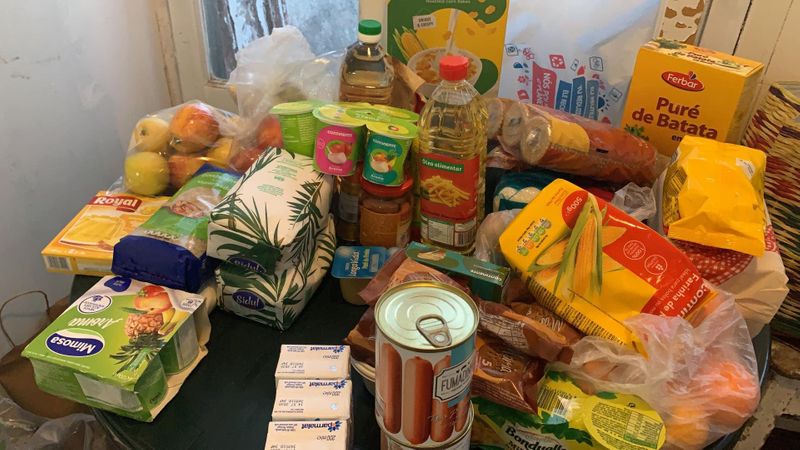By Catarina Demony
LISBON (Reuters) - Brazilians who make up Portugal's biggest migrant community mainly came to Europe in search of a better life, but the coronavirus crisis has wiped out incomes and jobs for many - and even pushed some onto the street.
One of an estimated 150,000 Brazilians in Portugal, 46-year-old Patricia Gomes arrived two years ago and was able to get by on a minimum wage care home job paying 635 euros ($688) a month.
Life was not easy for Gomes, from Brasilia, who found a place in a Lisbon apartment, where over 20 people share five tiny bedrooms and cockroaches are common. But it got a lot worse when she lost her job just before Portugal's March 18 lockdown.
Now, she cannot pay her 200 euros' monthly rent and relies for food on donations from charities.
"Without that help I wouldn't be able to survive," she told Reuters by phone from her kitchen with housemates. "This pandemic is making things hard for me."
Though evictions and some rents have been suspended, Gomes said she had been threatened with being kicked out.
"PRECARIOUS SITUATIONS"
Homeless charity Comunidade Vida e Paz said the number of Brazilian and other migrants sleeping rough in Lisbon has increased significantly since the outbreak began.
The government has confirmed receiving pleas for help from Brazilian migrants, but not given data.
Cyntia de Paula, head of migrant association Casa do Brasil, said her team was flooded with hundreds of requests from Brazilians fired during the economic slump.
"The pandemic made one thing we already knew clear: Brazilians in Portugal are in extremely precarious situations," she said.
According to the Migration Observatory, before the crisis, Brazilians in Portugal took home an average of 807 euros per month, 14% less than Portuguese.
Brazilian activist Bruno Falci said many of his compatriots did not have employment contracts - an obstacle for people trying to access new government aid schemes.
Diogo Dias, a 33-year-old from Sao Paulo, also lost his job after the hairdresser where he worked shut its doors.
"If the economy doesn't pick up I don't know if I can stay here in Portugal," he said.
During March and April, 153 migrants in Portugal, mainly Brazilians, applied for a programme run by the United Nations' International Organisation for Migration (IOM) to return home, a 66% increase compared to the same period last year.
